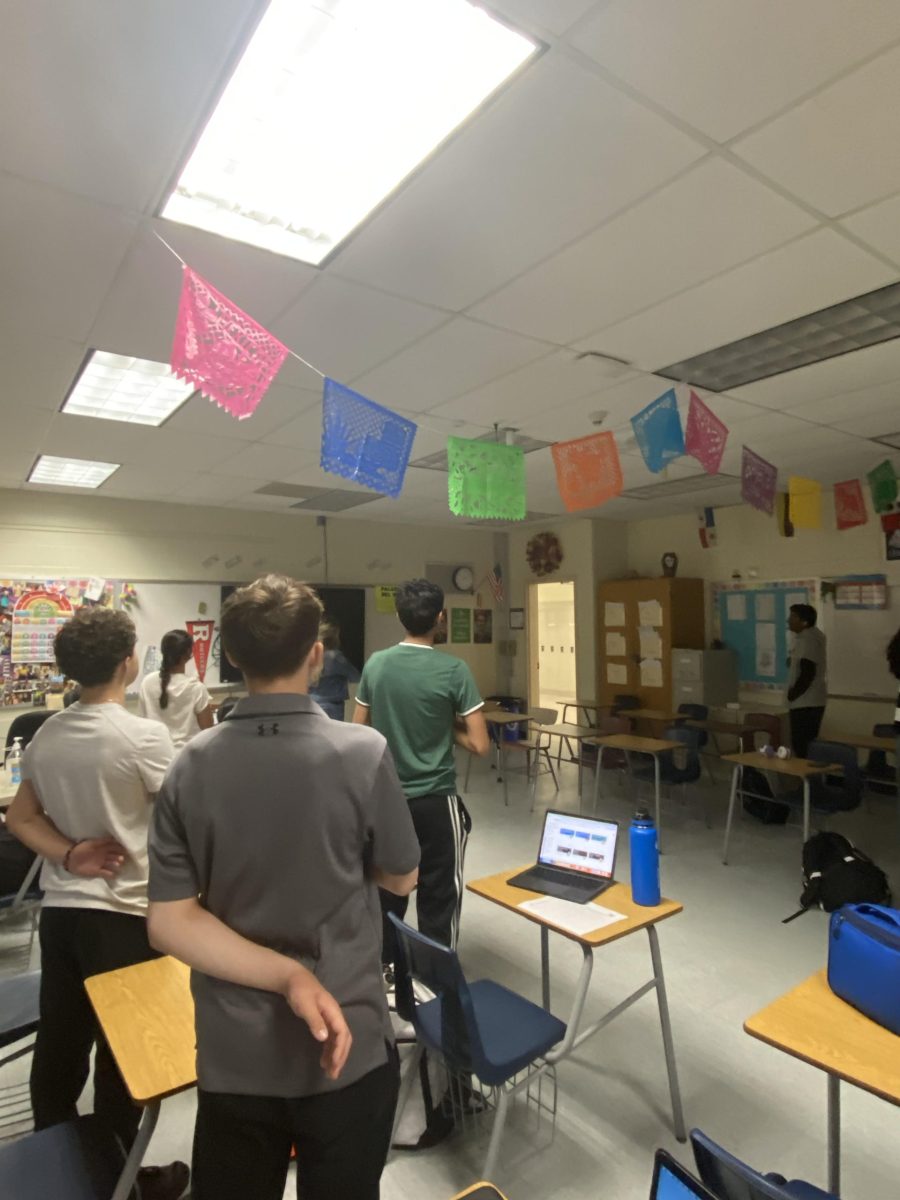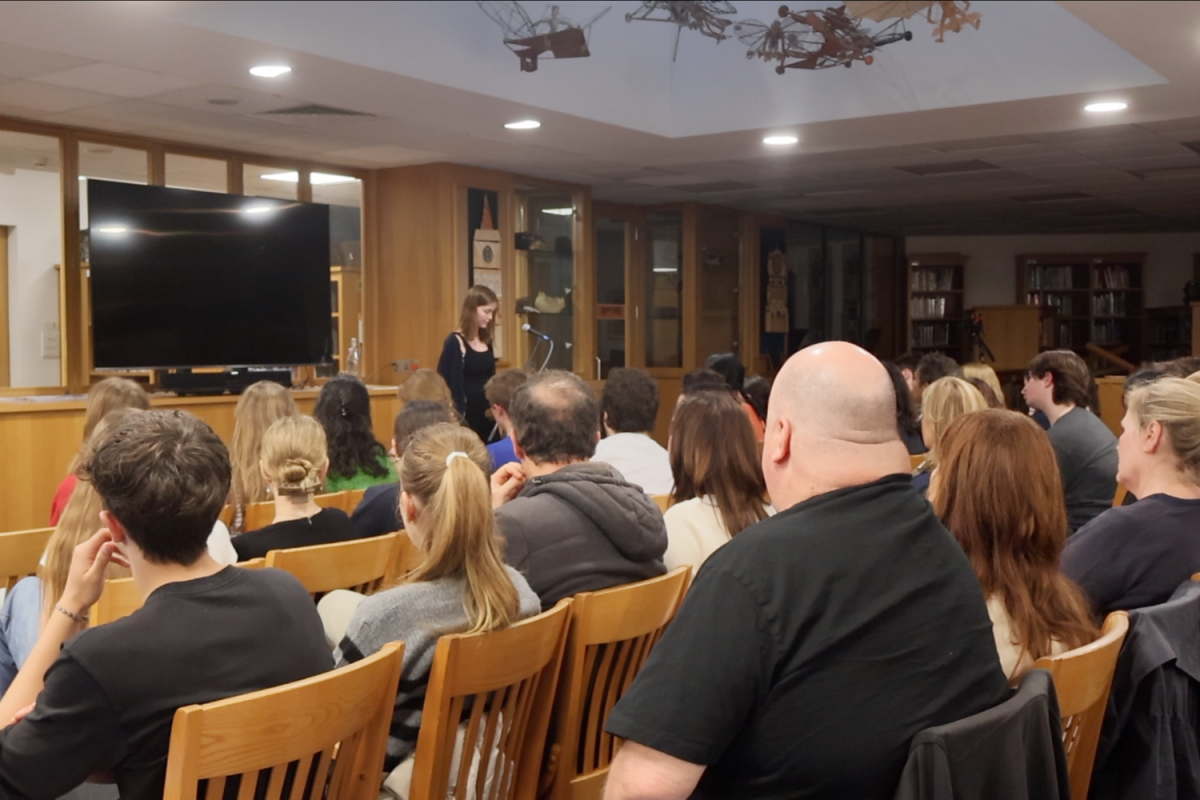District leaders failed to include teachers and students in the decision making process regarding their preliminary plans to remove all level four World Language classes and the smallest language program at each school over the course of the five years. Though this decision is not yet finalized and will not affect any students graduating prior to 2027, it has upset World Language teachers and students as FUHSD made this decision behind closed doors, with little to no input from teachers, students or parents. Accounting for the widespread impacts of the policy on those who have been excluded from the decision making process, FUHSD should consistently incorporate more community involvement when finalizing future decisions and reevaluate this controversial and harmful action plan.
The removal of classes will eventually lead to fewer choices for students to fulfill their language requirements for graduation and college. As language classes currently have one of the highest ratios of students per class, the removal of all honors classes is likely to increase the number of students in remaining classes, adding pressure on teachers to accommodate the needs of all their students.
“It’s much harder to teach a class of 40 than 30 students,” Spanish teacher Kim Revilla said. “There’s just more bodies in the room, so you’re navigating around everyone. Grading takes longer, and it’s hard to get to know that many students.”
In the tentative plan, Japanese, Lynbrook’s smallest language program, is posed to be the first course to be phased out within the next five years. All levels of Japanese will be eventually removed, starting with the removal of Japanese 1 from Lynbrook’s course offerings.
“When I first heard about the plan, I was very disappointed and saddened by the fact that it could potentially mean the end to this program I have been working on for the past 17 to 18 years of my life,” Japanese teacher Jeremy Kitchen said. “It has always been out there that this could happen, as we have had meetings hinting that the school might no longer be at a size that can sustain four languages anymore. It’s not a complete surprise, but the reality of it actually coming through is very different from knowing it might happen at some point later on.”
Students who wish to take a Japanese course would then have to commute to either Homestead or Fremont High School, which is unreasonable as it would be inconvenient and force students to sacrifice other classes in their schedule. Aside from the commuting time between two schools being much longer than a passing period, most Lynbrook students also do not have their driver’s license and have few means of transportation with parents’ busy schedules.
“If I had the choice between going to a different school to take the class and dropping Japanese entirely, I would choose to stop taking the class because what makes Japanese so fun is our teacher and the fun environment he has created for us to learn in,” junior Shaumik Kalwit said.
Miller Middle School, the feeder school for Lynbrook, has the only Japanese program in the Cupertino Union School District. With the removal of Japanese classes, Miller students who are currently taking Japanese must either start a new language at Lynbrook or commit to lengthy commutes to another FUHSD school to continue learning the language.
“I took Japanese with Saeki Sensei at Miller, but if there were no Japanese classes at Lynbrook, I wouldn’t have taken Japanese in the first place,” junior and Japanese National Honor Society officer Rickey Chiu said. “So essentially, no Japanese at Lynbrook means no Miller Japanese either.”
The second most impacted language program by this preliminary plan at Lynbrook is the Chinese program, which currently only offers three levels: level three, level four honors and level five AP. Once Chinese honors is removed from elective options, students will be forced to choose between the two remaining classes. With a smaller number of available classes, it may be harder for counselors to grant many students’ first choice for a language class.
“In total, Lynbrook’s Chinese program has three classes, adding up to more than 100 students,” Chinese teacher Zoey Liu said. “If this decision carries through, many of these students will not have an appropriate level to go to.”
The removal of all language honors classes would also mean cramming more content into fewer classes in an attempt to properly prepare students for AP language classes and mastery of the language for use in the real world. With a faster-paced curriculum in all classes, students may not be able to grasp the information as well and learn as effectively as they would before. Some language teachers fear that this would increase students’ stress levels. For students taking Chinese, those who would like to continue after taking Chinese 3 would have to directly take the AP class the following year, regardless of their proficiency.
“In Chinese 4, I learned a lot of new vocabulary that was used in AP Chinese,” sophomore Brigitte Au said. “Taking the honors class definitely made AP a lot easier.”
Before the plan was announced, world language teachers were not notified of this decision nor consulted in the decision making process. Many world language teachers are upset by this decision, citing a lack of transparency and exclusion from the creation of the proposal.
“I felt devastated,” French teacher Elizabeth Louie said. “I see how hard my colleagues work and how much they care. We all want our students to be happy and to feel supported as they’re learning a new language. It’s hard to think about losing the communities of language learners we’ve worked hard to build.”
Instead of coming to conclusions behind closed doors, the district should be more transparent with decision making and ensure the involvement of the community in such decisions. As this proposal is not yet finalized and is subject to change, there is still hope for World language teachers and students to preserve this unique program.
“I think the district should definitely reconsider the consequences of this decision,” Kalwit said. “There’s so many students that feel passionate about Japanese which has created a community, and removing the class would mean either restarting or commuting to a different school.”
The district’s decision significantly impacts the students taking language courses without considering their input and concerns. Not only would the removal of these classes increase student stress levels, but also discards the hard work teachers have put into their programs. Seeing how significantly this decision would impact the paths of students and jeopardize the careers of language teachers, in the future, district staff members should prioritize transparency and clear involvement from students and teachers when proposing and coming to conclusions as they are the ones ultimately being affected.
the Epic voted 40-0 in favor of this stance.
This story was originally published on The Epic on April 10, 2023.





![With the AISD rank and GPA discrepancies, some students had significant changes to their stats. College and career counselor Camille Nix worked with students to appeal their college decisions if they got rejected from schools depending on their previous stats before getting updated. Students worked with Nix to update schools on their new stats in order to fully get their appropriate decisions. “Those who already were accepted [won’t be affected], but it could factor in if a student appeals their initial decision,” Principal Andy Baxa said.](https://bestofsno.com/wp-content/uploads/2024/05/53674616658_18d367e00f_o-1200x676.jpg)






![Junior Mia Milicevic practices her forehand at tennis practice with the WJ girls tennis team. “Sometimes I don’t like [tennis] because you’re alone but most of the time, I do like it for that reason because it really is just you out there. I do experience being part of a team at WJ but in tournaments and when I’m playing outside of school, I like that rush when I win a point because I did it all by myself, Milicevic said. (Courtesy Mia Milicevic)](https://bestofsno.com/wp-content/uploads/2024/06/c54807e1-6ab6-4b0b-9c65-bfa256bc7587.jpg)








![The Jaguar student section sits down while the girls basketball team plays in the Great Eight game at the Denver Coliseum against Valor Christian High School Feb. 29. Many students who participated in the boys basketball student section prior to the girls basketball game left before half-time. I think it [the student section] plays a huge role because we actually had a decent crowd at a ranch game. I think that was the only time we had like a student section. And the energy was just awesome, varsity pointing and shooting guard Brooke Harding ‘25 said. I dont expect much from them [the Golden Boys] at all. But the fact that they left at the Elite Eight game when they were already there is honestly mind blowing to me.](https://bestofsno.com/wp-content/uploads/2024/05/IMG_7517-e1716250578550-900x1200.jpeg)









![BACKGROUND IN THE BUSINESS: Dressed by junior designer Kaitlyn Gerrie, senior Chamila Muñoz took to the “Dreamland” runway this past weekend. While it was her first time participating in the McCallum fashion show, Muñoz isn’t new to the modeling world.
I modeled here and there when I was a lot younger, maybe five or six [years old] for some jewelry brands and small businesses, but not much in recent years,” Muñoz said.
Muñoz had hoped to participate in last year’s show but couldn’t due to scheduling conflicts. For her senior year, though, she couldn’t let the opportunity pass her by.
“It’s [modeling] something I haven’t done in a while so I was excited to step out of my comfort zone in a way,” Muñoz said. “I always love trying new things and being able to show off designs of my schoolmates is such an honor.”
The preparation process for the show was hectic, leaving the final reveal of Gerrie’s design until days before the show, but the moment Muñoz tried on the outfit, all the stress for both designer and model melted away.
“I didn’t get to try on my outfit until the day before, but the look on Kaitlyn’s face when she saw what she had worked so hard to make actually on a model was just so special,” Muñoz said. “I know it meant so much to her. But then she handed me a blindfold and told me I’d be walking with it on, so that was pretty wild.”
Caption by Francie Wilhelm.](https://bestofsno.com/wp-content/uploads/2024/05/53535098892_130167352f_o-1200x800.jpg)








